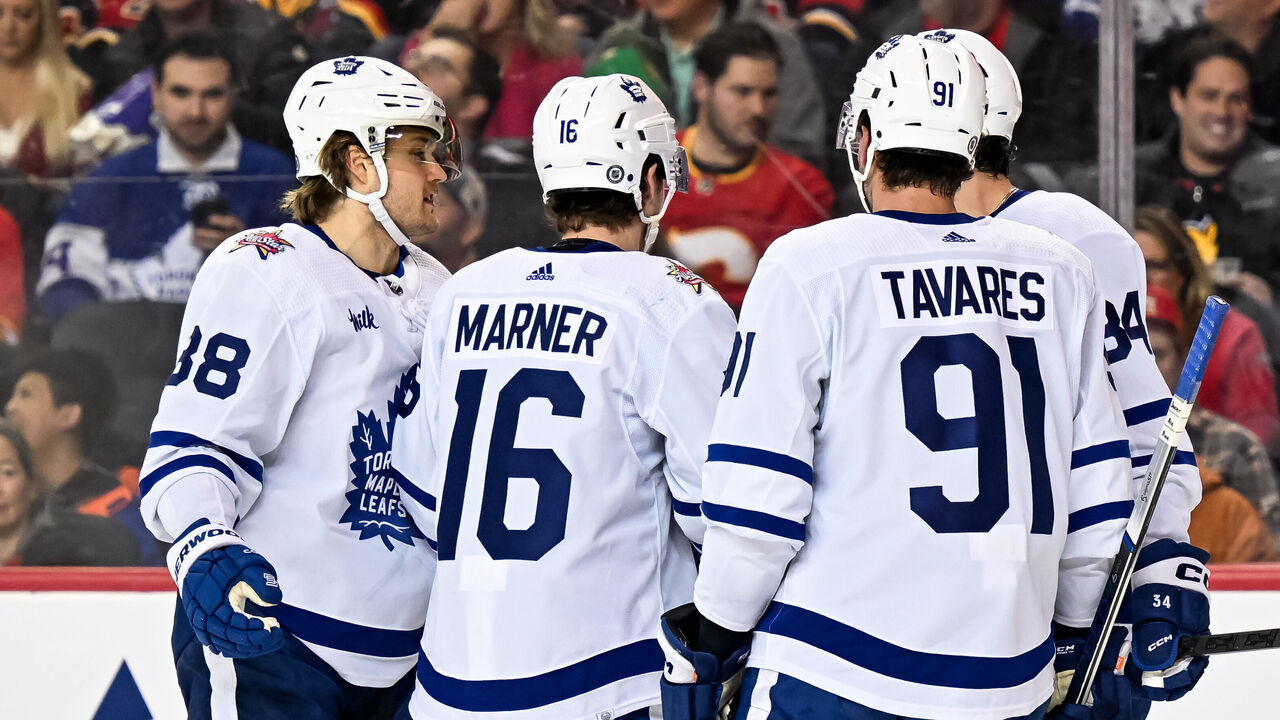Keefe's inevitable exit doesn't solve Leafs' puzzle
The only surprising thing about the Toronto Maple Leafs' dismissal of head coach Sheldon Keefe is that it didn't happen a year ago.
Yes, yes, there were complicating factors. Team president Brendan Shanahan was on the verge of bringing back general manager Kyle Dubas last spring when a late fallout led to a course change and the somewhat hurried hiring of Brad Treliving to replace Dubas.
Treliving didn't have the time for a thorough coaching search and instead stuck with the guy he inherited. The logic is understandable: Why burst through the door, guns blazing, before you've even had the chance to figure out where the executive washrooms are located?
But how much more evidence was required to show that Keefe couldn't solve the riddle of the Maple Leafs' annual early exit? They lost to the Columbus Blue Jackets in the 2020 postseason - a team that hasn't made the playoffs since. They lost to the Montreal Canadiens the following year, a team that finished last in its division in each of the following three seasons. They lost in the first round in two of the following three seasons after that. Even when they did manage to win a playoff round last season in some strange twist of cosmic fate, they embarrassed themselves with a no-show against the eighth-seeded Florida Panthers.
Did they have some bad injury luck and fall victim to the vagaries of knife-edge playoff hockey? Sure. Run into some hot goalies? Yep (mysteriously, the other team always seemed to have the hot goalie). But four kicks at the playoffs is a lot of kicks. Under Keefe, the Leafs were like a luxury car with a steering misalignment: expensive, looks great, but always ends up in the ditch.
And while the epitaph for Keefe's time in the job will say that he led great regular-season teams that couldn't get it done in the playoffs, even that is a bit of a stretch. For all of Toronto's high-end talent, the Leafs managed just two second-place finishes and two third-place finishes in the Atlantic Division during Keefe's tenure. (They won the all-Canadian division in the COVID season, then promptly had their most embarrassing playoff loss.) The Leafs always looked a notch below Boston, Tampa Bay, or both, and this year it was Florida's turn to look like a more complete team.
That's where the path forward gets tricky: Keefe wasn't able to solve the Leafs, and they will remain a conundrum for the next guy. They have top-end talent that should form the core of a championship contender, but Dubas and now Treliving have been unable to find the right mix of players around them to either provide the scoring depth that's required at playoff time, or perform all the necessary greasy work that would allow the star forwards to cut loose like they might do on a random February night.

That bit about how the Leafs pay their Core Four so much that it makes roster-building a real challenge? It's not just the ramblings of the internet masses or a tired trope of talk radio. It's a fact. This season, the Leafs spent 48.5% of their salary cap on their top four forwards - Auston Matthews, John Tavares, Mitch Marner, and William Nylander - according to CapFriendly. The Avalanche dedicate 44.3% to their top four, made up of three forwards and a defenseman. The Oilers pay 43.5% to their top four, also three forwards and a defender. The Bruins spend 40% on their top four, two forwards and two defensemen. You see the pattern here. The New York Rangers are closest to Toronto with 45.1% of the cap allotted to four guys, but they include two forwards and two defenders.
Those extra percentage points of cap room that other teams have beyond their top four players mean they can sprinkle a few million dollars elsewhere, which might have spared the Leafs from the constant churn at the lower end of the roster.
Cap constraints mean Treliving will likely end up trying to do the same things he did last summer: picking up veterans on relatively cheap deals, betting that some young and unheralded players can become reliable depth guys, and desperately hoping that the team doesn't enter another April while still trying to identify its No. 1 goaltender.
When Shanahan, Treliving, and new MLSE boss Keith Pelley meet the Toronto media on Friday, they are sure to be asked if more substantial changes will be made. Some version of, "How can you possibly run it back again?"
And while no one will say, "Because we have to," there's a good chance that's what they are thinking.
Could there be some imagined scenarios in which one of Tavares or Marner, both of whom are entering the final year of their contracts and both of whom can block any trade, would consent to a deal out of town for a package that doesn't make the Leafs worse in the short term? It's possible, yes. Is it likely? Not in the least.
Which means the next Toronto Maple Leafs head coach will be given more or less the same assignment as Sheldon Keefe and Mike Babcock before him. Here's your team, with some great parts, some good parts, and some that were all we could squeeze under the cap: See if you can figure it out.
Scott Stinson is a contributing writer for theScore.
HEADLINES
- Kings fire Jim Hiller, name D.J. Smith interim coach
- Matthews: Leafs need more pride after 'embarrassing' loss to Sens
- Hughes brothers, Knight, Keller help with 'Heated Rivalry' star's 'SNL' monologue
- NHL Awards Watch: Races heating up as we enter stretch run
- Caufield scores twice as Canadiens crush Capitals